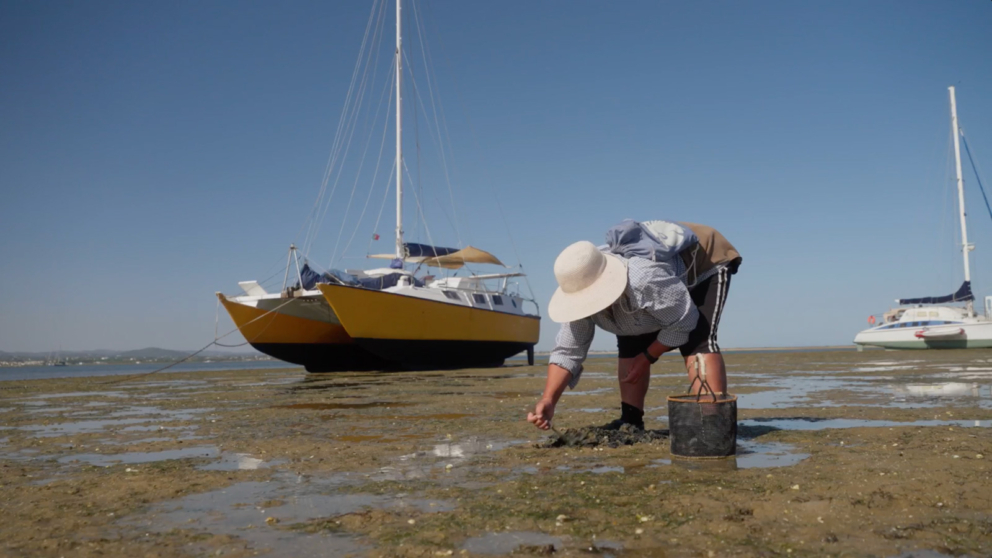‘They take everything and destroy everything’

Around a thousand people live on the island of Culatra, on the other side of the Ria Formosa, between the city of Olhão and the Atlantic Ocean. The 200-year-old community is 90 per cent dependent on fishing and other sea related activities.
Madalena knows every centimetre of the island. A good conversationalist, she calls each sandbank by its name – names that are not on maps, but which have been perpetuated through generations. A shellfish gatherer, married to a fisherman, like most couples in the island, she feels the daily pressure generated by the 4,000 people who ‘invade’ the island during summertime and the dozens of boats that moor there, with their keels and anchors destroying the marine prairies of that sensitive ecosystem. She sees the unruly ways in which fishermen from other areas come to trawl for shellfish and is not satisfied to see her livelihood in danger of disappearing.
The shellfish gatherer can protest and complain, but her voice is not always heard. And this is where Valentina and Sciaena, with the Association of Marine Sciences and Cooperation, come in. Supported by the Calouste Gulbenkian Foundation, this association set up the “Women of the Ria” project to give a voice to the people of Culatra and help them create formal and informal forums for exchanging information and community participation. Its final objectives are to create a proposal for a community-initiated marine area protection zone, an associated management plan, and implement a pilot project to protect marine prairies, which are important blue carbon sinks and actively contribute to promoting environmental balance in coastal ecosystems.
Sciaena recognises the importance of these women as pillars of the community, as the first protectors of the local environment (“because they are mothers“) and she aims to ”not only protect the environment, but also strengthen social cohesion, empowering them and contributing to sustainable community development that respects and values their unique knowledge, promoting an integrated approach that goes beyond climate action.”
Sciaena has several partners in this project: the Culatra Island Residents’ Association, the Centre for Marine Sciences (CCMAR), Faro City Council and OCEAN ALIVE – Cooperativa para a educação criativa marinha CRL.
More info